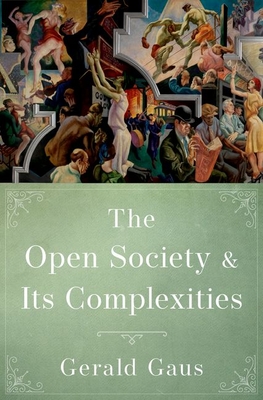What do you think?
Rate this book


304 pages, Hardcover
Published August 20, 2021
[Imported automatically from my blog. Some formatting there may not have translated here.]
The author, Gerald Gaus, died shortly after completing this book. It was nominated for last year's Hayek Book Prize by the Manhattan Institute.
I picked it via Interlibrary Loan, which was unfortunate. If I'd browsed through it off a library shelf, I probably would have quietly put it back. It's very complex and dense, and I had to go into "look at every page" mode for long stretches. There's even math (page 219):
xi = xi-1 + 1 ± (p × yi-1) ± (q × Zi-1)
I don't know how well that will translate on Goodreads. But in any case, that tells you the intended audience for the book: those who can look at that and say "Ah, of course." (I can almost tell what's going on: it's intended to model the evolution of a social policy that has a number of "targets", which are influenced by each other and a couple other independent parameters.)
So what did I understand?
Gaus's goal here is to update the concept of the "Open Society" as described by Friedrich Hayek and Karl Popper. (Hayek usually called it the "Great Society".) In the decades since that framework was promulgated, there have been immense strides in anthropology, evolution (biological and cultural), economics, and game theory. How does (especially) Hayek hold up?
It's a mixed bag. Hayek was pessimistic; he speculated that the ethos of small-tribe hunter-gatherer societies was more or less hard-wired into our brains, and those egalitarian biases could well flummox any effort to establish a classical-liberal order for the long term. Gaus objects that before those small tribes developed, we were more like our closest primate kinfolk: chimps and bonobos. And those species aren't egalitarian at all. So there's every reason to suppose that we aren't hardwired egalitarians.
Gaus goes on to examine how social morality and cooperation can evolve, given the (actually) unchanging bits of human nature, diversity of attitudes, values, and talents, and changing environments and resources. Lots of game theory here. Basically, Gaus winds up agreeing with Hayek's belief that "grand plans" for human society were misguided; instead, society can and should evolve on its own, self-organizing. Probably painfully, but necessarily so. "Governors" at every level of society can help by measured, small-scale fixes. But much remains outside their power. Gaus is pretty optimistic about the long-term prospects for the Open Society.